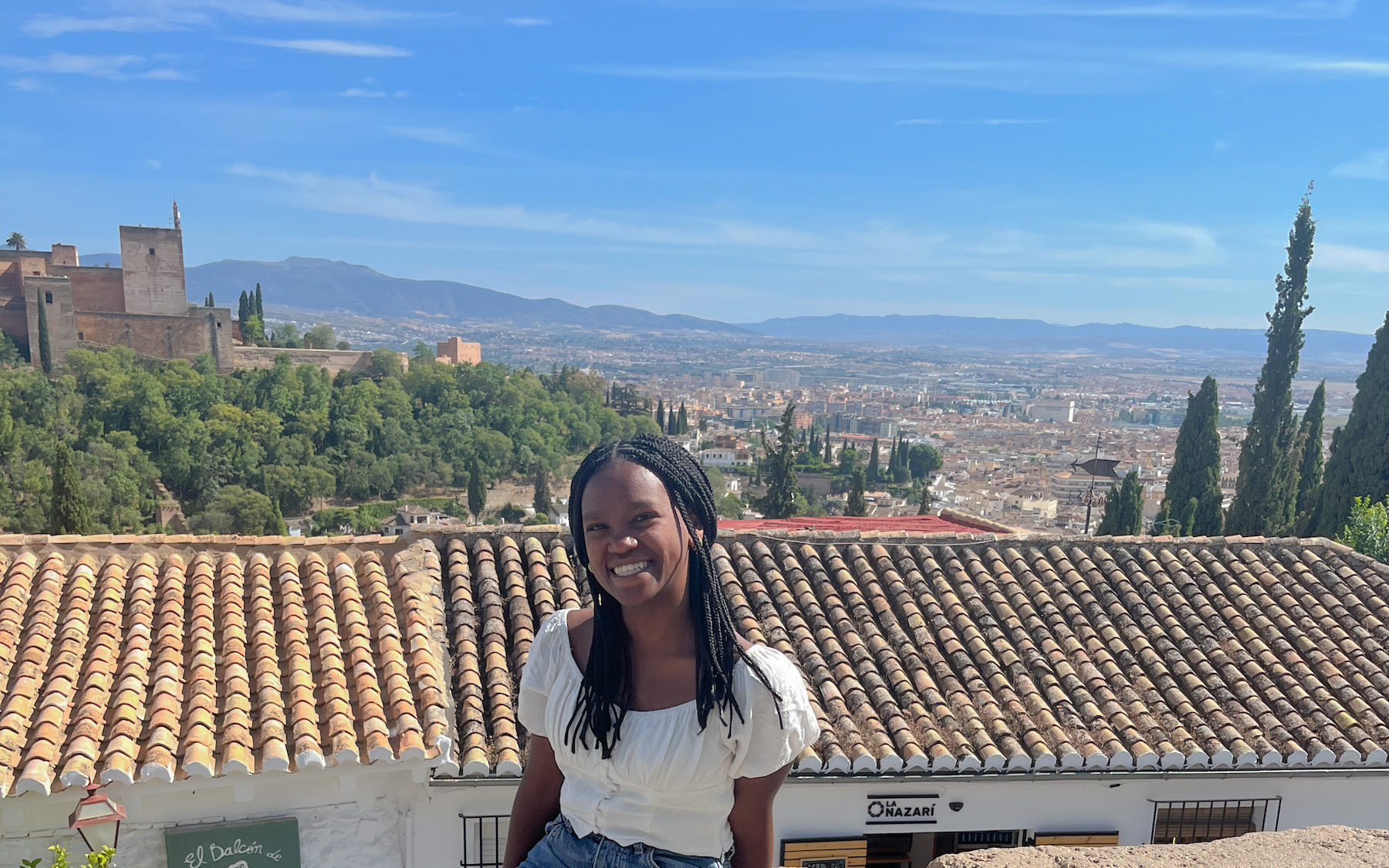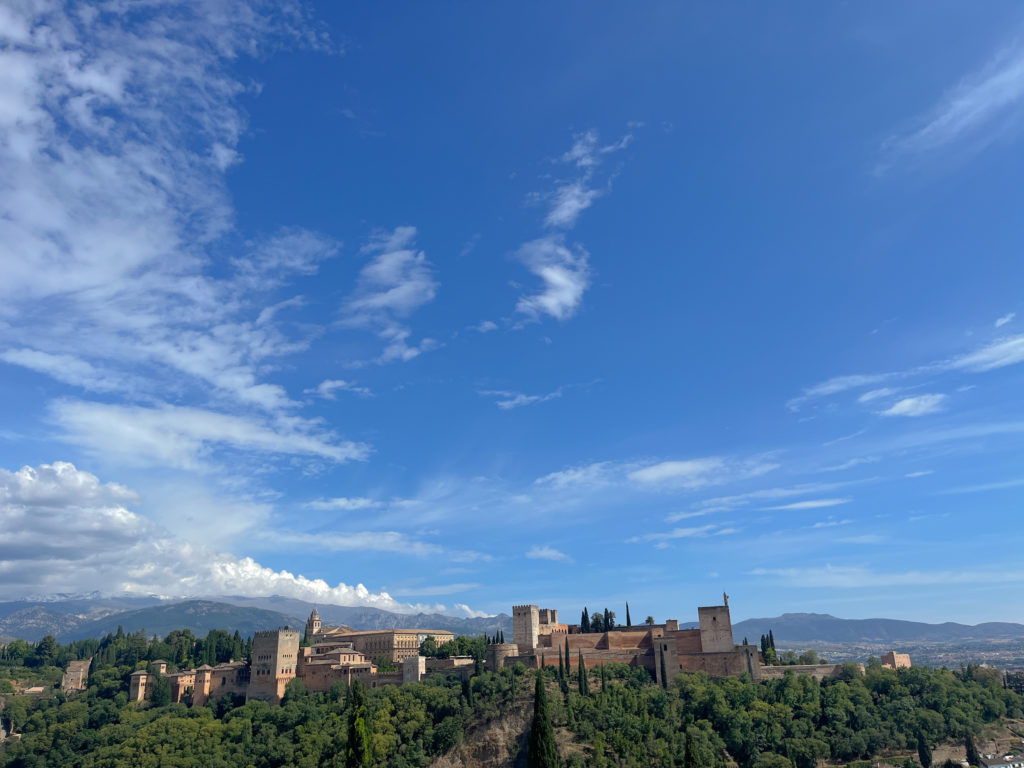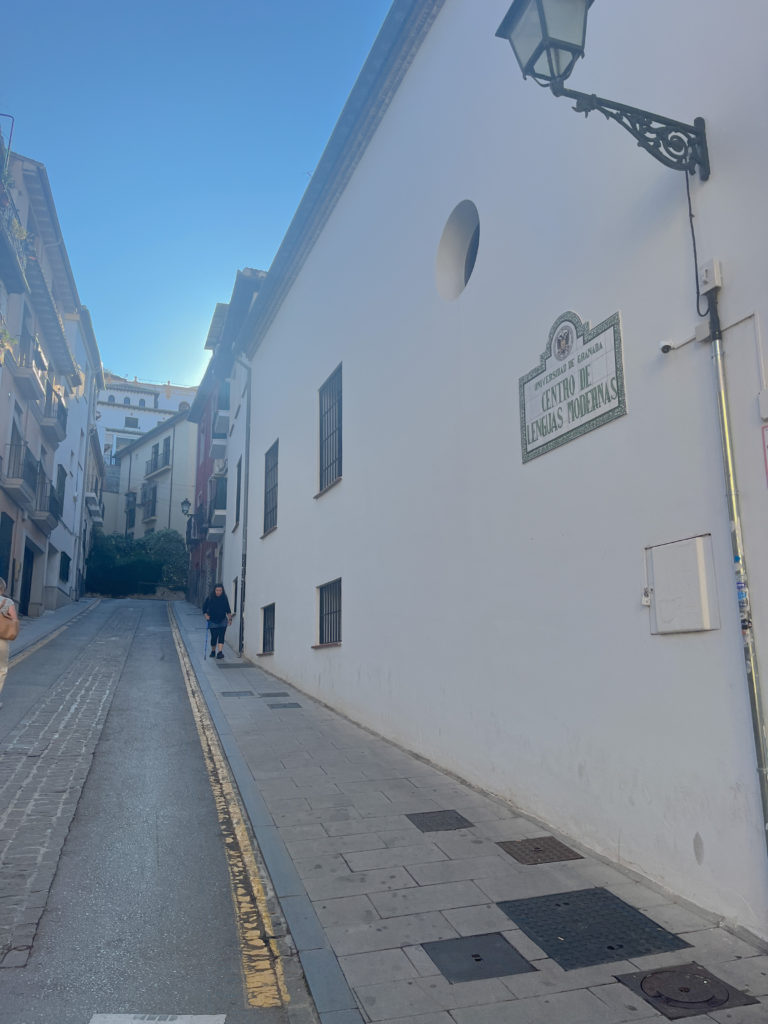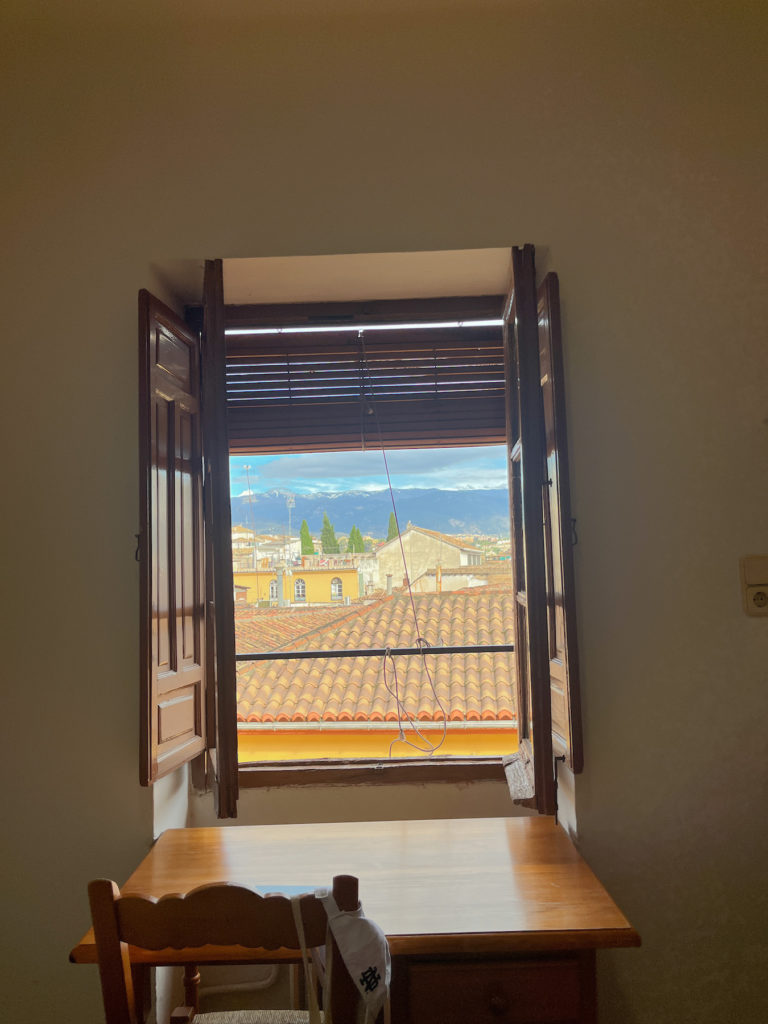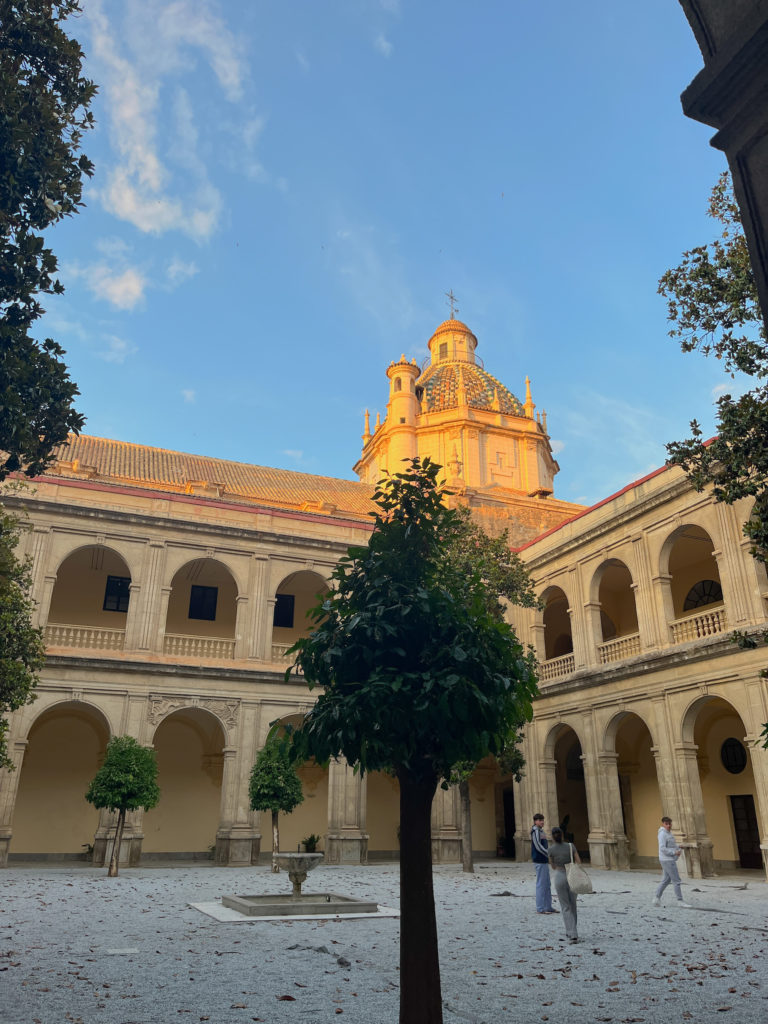
What a week! I can’t believe I’ve already been here this long. I arrived in France on May 19 and stayed just outside Paris with some family friends for two days. They took me to a few really amazing places. On Friday night, we went to the Eiffel Tower, where I got to see the sun set over Paris. The following day, we visited la Basilique du Sacre-coeur at Montmartre, where we not only saw the inside of the basilica but also got to climb to the top of the dome (293 steps upon which I learned little by little just how out of shape I am). Paris, obviously, was beautiful and I loved every moment there.
On Sunday, the family I stayed with for the few days in Paris generously drove me to my residence in Tours. Once there, the man at the front desk showed me to my room and around the residence. Notably, I am pretty lucky in the fact that the residence is less than a 2 minute walk from the Institute I take classes at and about a 5 minute walk from the center of the town. After arriving, checking in, and calling my parents, I decided to head to the downtown area to get some lunch. Why is this notable? This is where our critical incident story begins.
Some background information: the area where I tend to get food is a t-shaped section of a larger downtown area that loops around to itself. There are lots and lots of restaurant options here, all of which are pretty good at the very least (at least, the ones I’ve tried). When I found it for the first time, I walked around to see exactly what some of my options were, and I knew I’d find something I would like at pretty much any of them. However, I couldn’t bring myself to actually walk into one. I made the loop once, then twice, then a third time, and before I knew it I had been walking the same t-shaped path for 30 minutes and had traversed more than a mile and a half in the process. Every time I tried to enter a place and order something off the menu, the little man in my head steered me away and down the same road again. Finally, I picked a place, walked in, and in the least intelligible French I think I’ve ever spoken, I began with, “Hello, I’m so sorry, I’m American and…”
Looking back on myself, I can laugh pretty hard, but in the moment I felt like I was watching myself fall over in slow-motion from a third person perspective. Anyway, the poor hostess was incredibly understanding. She asked if I wanted to sit inside or outside, and then if I wanted the english menu, to which I replied, “Non, je peux lire en francais…” I ordered a cocktail (because she said they had one and I was afraid to make a choice), a plate of salmon, and after, a panna cotta. I paid, and I ran back to my room.
As far as first interactions in French go, I’m genuinely unsure if mine could have been any more awkward. To the hostess and waitress who dealt with me at my most strung-out (I think ever), I’d like to issue both a huge apology and a huge thank-you. I never could have predicted just how terrified I was going to be even when just trying to order food for the first time.
Ripping that band-aid off proved to be the first defining moment of my stay in France, and my fear brought with it a lot of points for reflection. First, I realized I wasn’t as advanced, confident, and culturally competent as I thought I was. I had only really interacted with situations and people I felt I could express myself to, and when that fundamental ability wasn’t as in reach, I absolutely panicked. I got to actually see where the boundaries of my comfort zone were and then had to jump over them, instead of just toeing the line.
I also, though, actually managed to get through an interaction in French, and after that first one, asking for a few croissants at the Boulangerie didn’t seem as intimidating anymore (and I even got one for free). Despite how clunky my French still indubitably was, the interactions themselves began to run smoother and follow a now-comfortable formula, which let me see that improvement was actually attainable.
I met Martha and Andy as well, and got to walk and talk with them. I’m super excited to see how we all progress here and experience some wonderful things in the process! Allons y!


